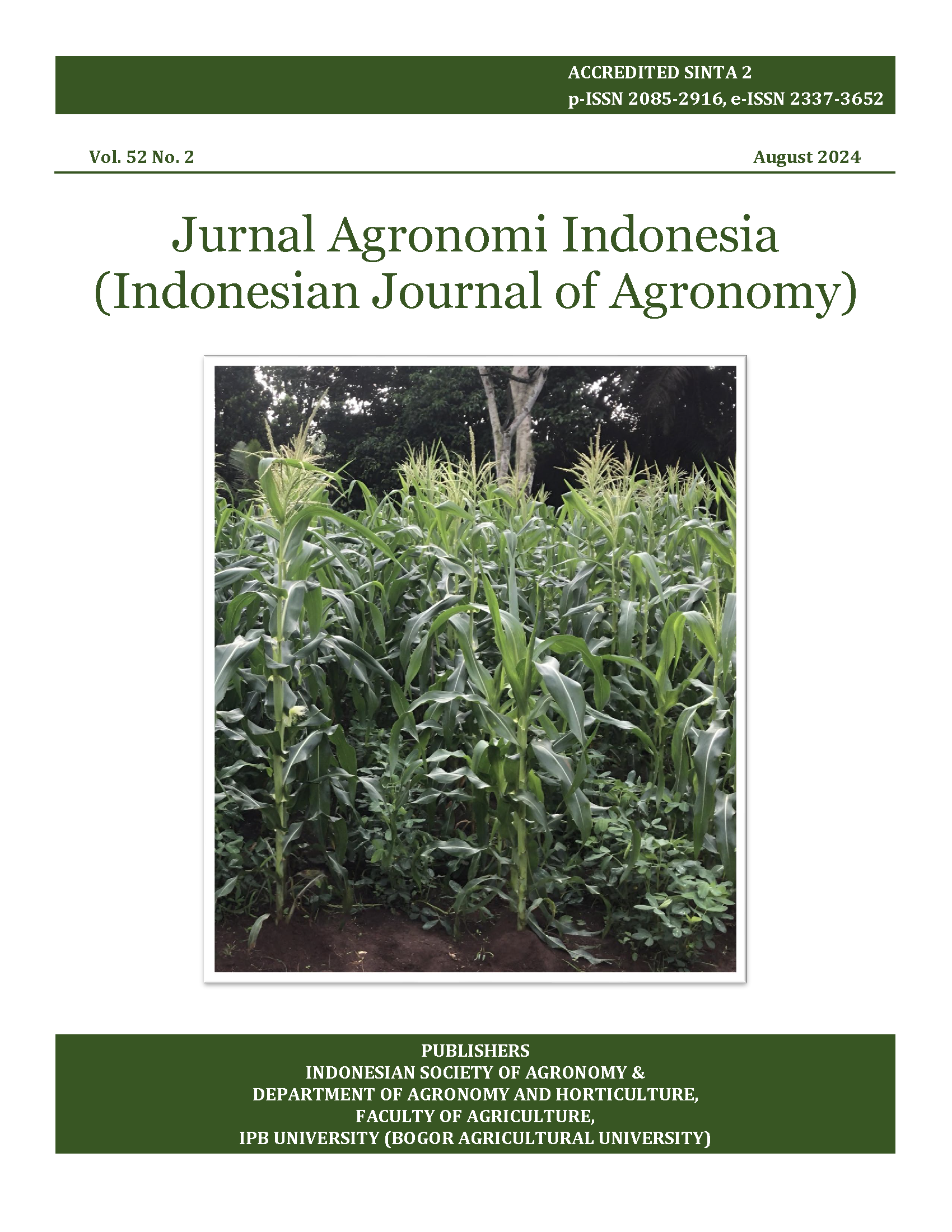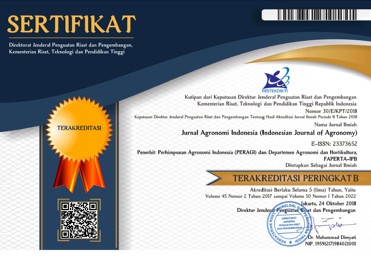Allelopathic potential of apus bamboo leaf extract towards Asystasia gangetica and Cyperus rotundus
Abstract
Weeds pose a significant challenge in agricultural activity by competing with cultivated crops for essential resources. The conventional use of chemical herbicides has demonstrated adverse impacts on the environment and human health, prompting a shift toward exploring bioherbicides. This study aimed to assess the inhibitory effects of Apus bamboo (Gigantochloa apus Kurz) leaf extract on the pre-germination phase of Brassica juncea, Asystasia gangetica, and Cyperus rotundus through bioassay and pot experiment. The research design employed a completely randomized design (CRD) with a single factor representing the concentrations of Apus bamboo leaf extract (% w/v). The concentrations tested were 0%, 5%, 10%, 15%, and 20%. Each concentration was replicated three times, resulting in 15 experimental units. Bioassay results revealed the capacity of Apus bamboo leaf extract to inhibit and disrupt B. juncea seed germination. The pot experiment results demonstrated the inhibitory effects of the extract, significantly affecting A. gangetica germination and population, A. gangetica total fresh and dry weight, and C. rotundus total dry weight. The extract exhibited strong inhibition, starting at a concentration of 15% for A. gangetica and 10% for C. rotundus. The findings suggested that Apus bamboo leaf extract holds significant potential as a bioherbicide.
Keywords: allelochemical; bioherbicide; inhibitory effect; weed control
Keywords: allelochemical; bioherbicide; inhibitory effect; weed control













